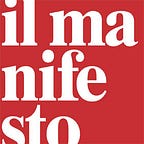The Bardo Museum, a universal temple
Interview by Valentina Porcheddu, il manifesto global, Oct. 30 2015
It’s forbidden to enter the Bardo Museum in Tunis with dogs or weapons, according to the 1993 version of the museum pamphlet. A provision that then might have seemed strange, reread today evokes sadness and mourning for the 22 victims of the jihadist assault this spring on the spectacular former Bey’s residence.
The museum is the winner of this year’s Paestum Archaeologia prize for its contributions to cultural dialogue and archaeological tourism, and it was recently honored at a conference, “#pernondimenticare il Museo del Bardo, 18 marzo 2015,” in Paestum, Italy, as part of the XVIII Mediterranean Archaeological Tourism Exchange.
The star of the event was the director of the museum, Moncef Ben Moussa, who before reaching Paestum (and before the “Touil case,” in which Italy declined to extradite a Moroccan man suspected of supplying weapons for the attack) spoke with il manifesto from Tunis.
Following the terrorist attack, the Bardo Museum reopened its doors almost immediately. An act of courage by the museum and the staff, but also of perseverance, emphasizing that, in this difficult period of democratic transition in Tunisia, the cultural institutions should not back down. Today, what is the Bardo?
The Bardo Museum contains the essential components of Tunisia’s identity, which firmly rejects terrorism. Before the attack of March 18, 2015, the Bardo was a symbol of our culture and that of the Mediterranean, and it is precisely for these reasons that it was targeted. The speedy reopening was a peaceful response, not only on the part of decision makers but the entire Tunisian people, against Islamic extremists. Today the Bardo has become an example of how to fight violence with culture. More than a museum, it is a temple where we gather amid the knowledge of Mediterranean history, in which we discover the pride of Tunisians in promoting the universal values of dialogue and tolerance.
The Bardo, with its rich and valuable collection of Roman mosaics [the largest in the world], is the preeminent museum in Tunis and one of the main tourist attractions of the country. Regarding its participation in the Mediterranean Archaeological Tourism Exchange, what can the museum say to Italian and international visitors to encourage them to resume travel in the southern Mediterranean?
Every Bardo guest, while traveling in a “foreign” land, will find among the works on display something that belongs to him, because culture invites encounters with oneself and with others. In Paestum, I would like to convey a message that is particularly close to heart. If you don’t go where terrorists have struck, it proves to them they have achieved their goal: to build barriers between peoples. Tunisia, from its ancient origins, has always been a welcoming country, and it will remain so because violence is not part of the behavior of its inhabitants. Currently, the Bardo has a tourist flow lower than a year ago, but we organize ongoing events that attract a large number of people.
In Italy there is talk of transferring works from the Bardo to Lampedusa for an initiative to recall the memory of migrants who have lost their lives at sea.
It is a project which we are enthusiastic about and that we hope will come true soon. However, collaborations with Italy abound. In the coming weeks some works from the Bardo collection will be on display at the Museum of Aquileia and this is a source of great joy.
The Italian archaeological missions in Tunisia, which in recent years have not abandoned the field, constitute an important instrument for dialogue between the two countries. However, it remains the preserve of a privileged group of citizens. What can be done to promote the broader involvement of both communities?
Italy and Tunisia have a long tradition of cooperation. It is true that cultural activities take place mainly within the framework of scientific projects. I am convinced, however, that other means of exchange are possible and necessary to encourage, in particular, the younger generation. With them and for them, we must commit ourselves — from one shore to the other — to build a world without borders, where culture becomes a right equally accessible to all parts of society.
Originally published at il manifesto global.
